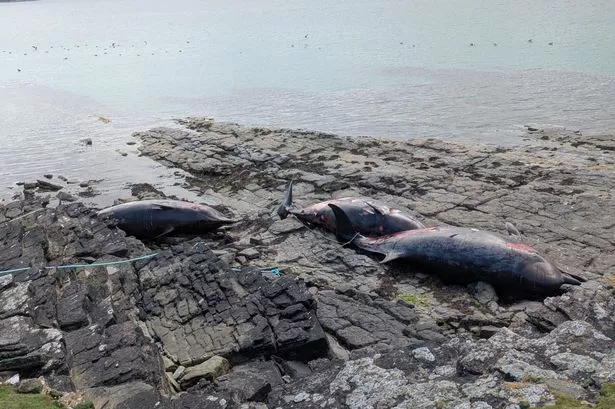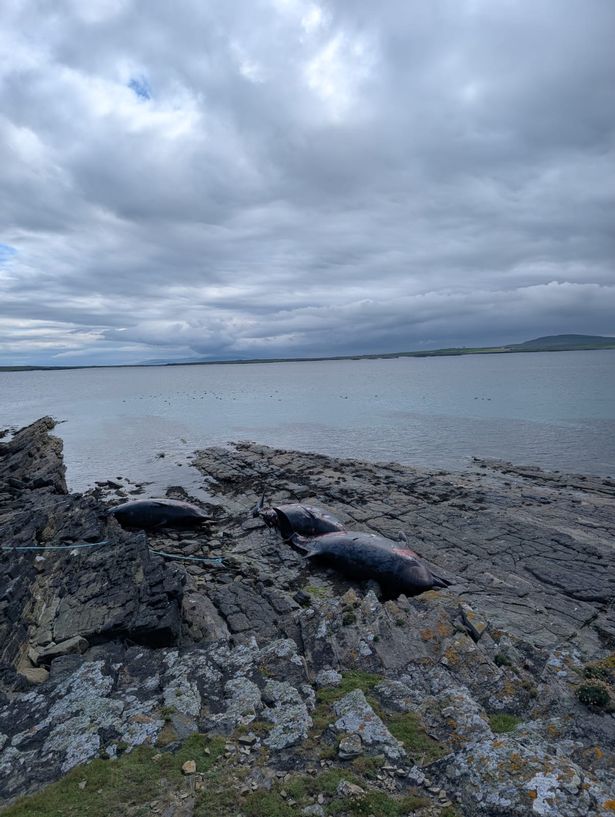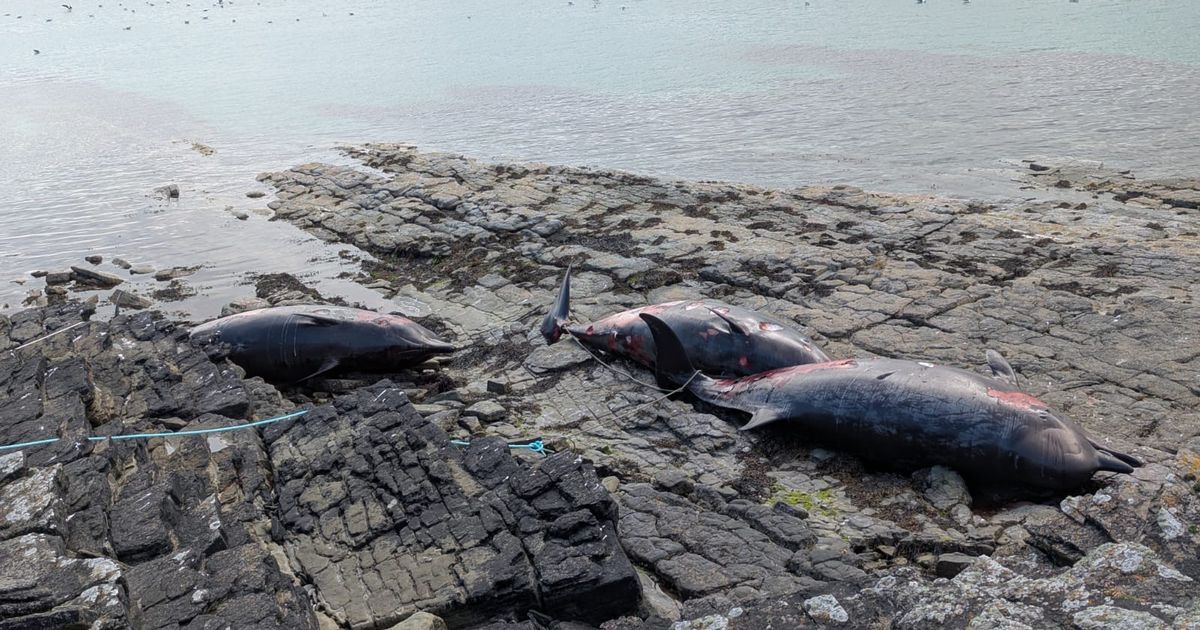A specialist team from the University of Glasgow has begun carrying out post-mortems on the whale carcasses. The bodies of the three northern bottlenose whales lying on the rocky shoreline of Papa Westray.
The bodies of the three northern bottlenose whales lying on the rocky shoreline of Papa Westray.
Three rare whales have been found dead on the shoreline on Orkney.
The northern bottlenose whales – a deep-diving ocean species rarely seen close to land – were discovered at the southern tip of Papa Westray, on Wednesday, July 23.
Early examinations suggest the animals were in good health before they became stranded, with no signs of entanglement, fishing gear injuries, or other human-related trauma.
The Scottish Marine Animal Stranding Scheme (SMASS), based at the University of Glasgow, is currently investigating the incident.
Director Dr Andrew Brownlow said the deaths were “tragic” and pointed to broader environmental concerns.
He said: “We have been attending the stranding of three bottlenose dolphins on Papa Westray and investigations are still at a very early stage. We can tell from initial examinations that the animals were all male and may not have fed in a number of days, possibly contributing to their stranding.
“While we do not yet know for sure why these particular animals stranded, we know this species are deep divers, whose usual habitat is the deep ocean and although it is not unheard of for this species to mass strand like this it is not usual. We know this species can be sensitive to the impacts of disturbance from for example underwater noise but at this stage it is not possible to say for certain what led to this stranding.
 Whales found dead on the remote Orkney island(Image: Supplied)
Whales found dead on the remote Orkney island(Image: Supplied)
“July is increasingly becoming a problematic month from strandings in Scotland, suggesting our waters are changing, impacting the wildlife within them. Although strandings are tragic events in their own right, we can learn from them in terms of the species, the individual animals, and what might be impacting them in our waters.”
The dead whales are being examined as part of ongoing efforts to better understand the causes of marine mammal strandings, which appear to be on the rise in Scottish waters.
 Join the Daily Record WhatsApp community!
Join the Daily Record WhatsApp community!
Get the latest news sent straight to your messages by joining our WhatsApp community today.
You’ll receive daily updates on breaking news as well as the top headlines across Scotland.
No one will be able to see who is signed up and no one can send messages except the Daily Record team.
All you have to do is click here if you’re on mobile, select ‘Join Community’ and you’re in!
If you’re on a desktop, simply scan the QR code above with your phone and click ‘Join Community’.
We also treat our community members to special offers, promotions, and adverts from us and our partners. If you don’t like our community, you can check out any time you like.
To leave our community click on the name at the top of your screen and choose ‘exit group’.
If you’re curious, you can read our Privacy Notice.
The incident has also sparked concern among conservationists, who fear that warming seas, pollution and increased maritime activity may be taking a toll on vulnerable marine species.
SMASS has urged anyone who finds a stranded marine animal – alive or dead – to report it immediately, so experts can respond and gather crucial information.
The final results of the post-mortem investigations are expected in the coming weeks.
